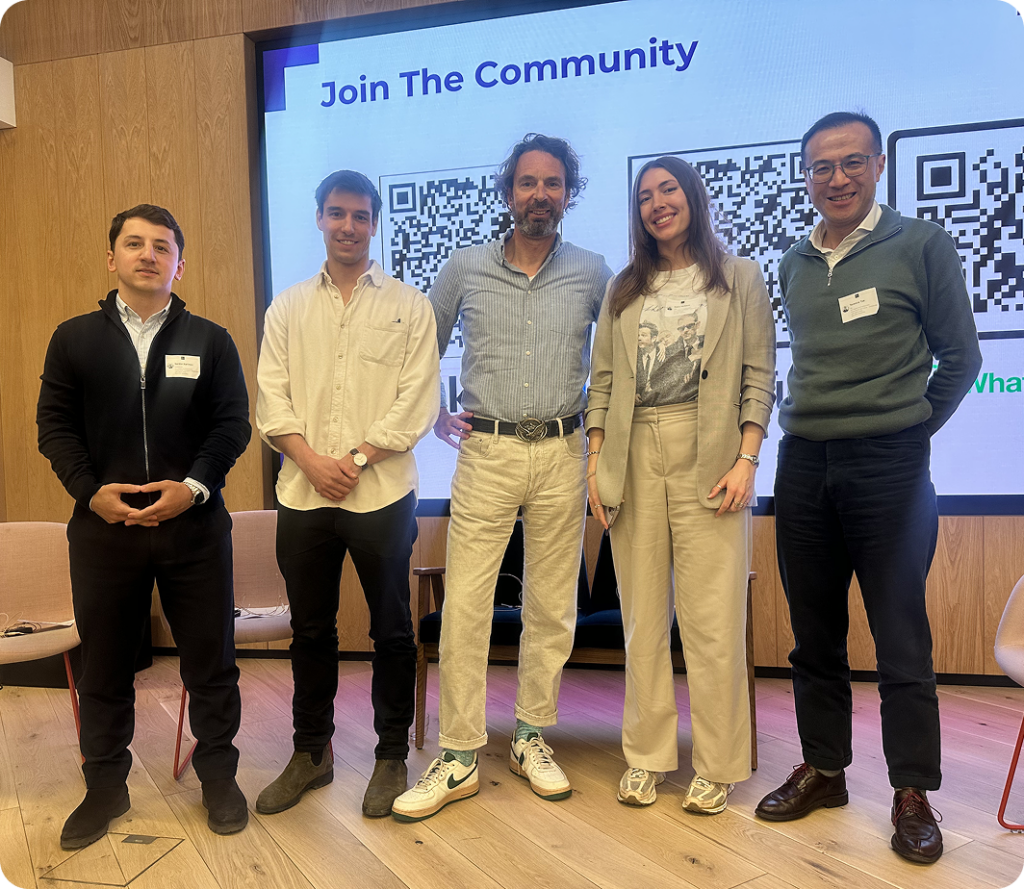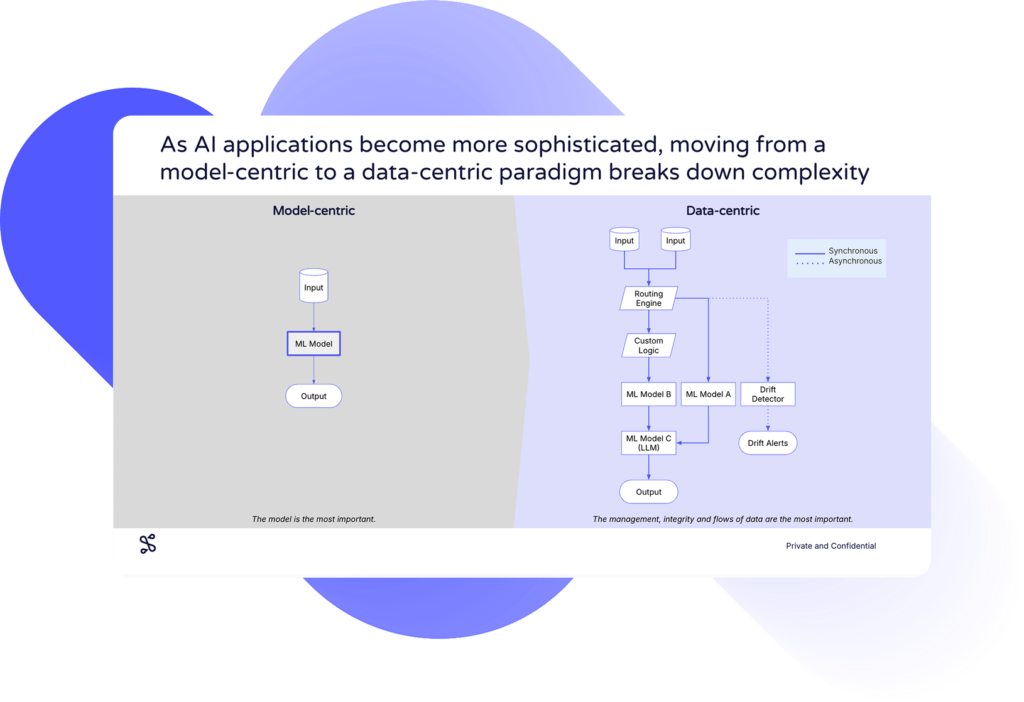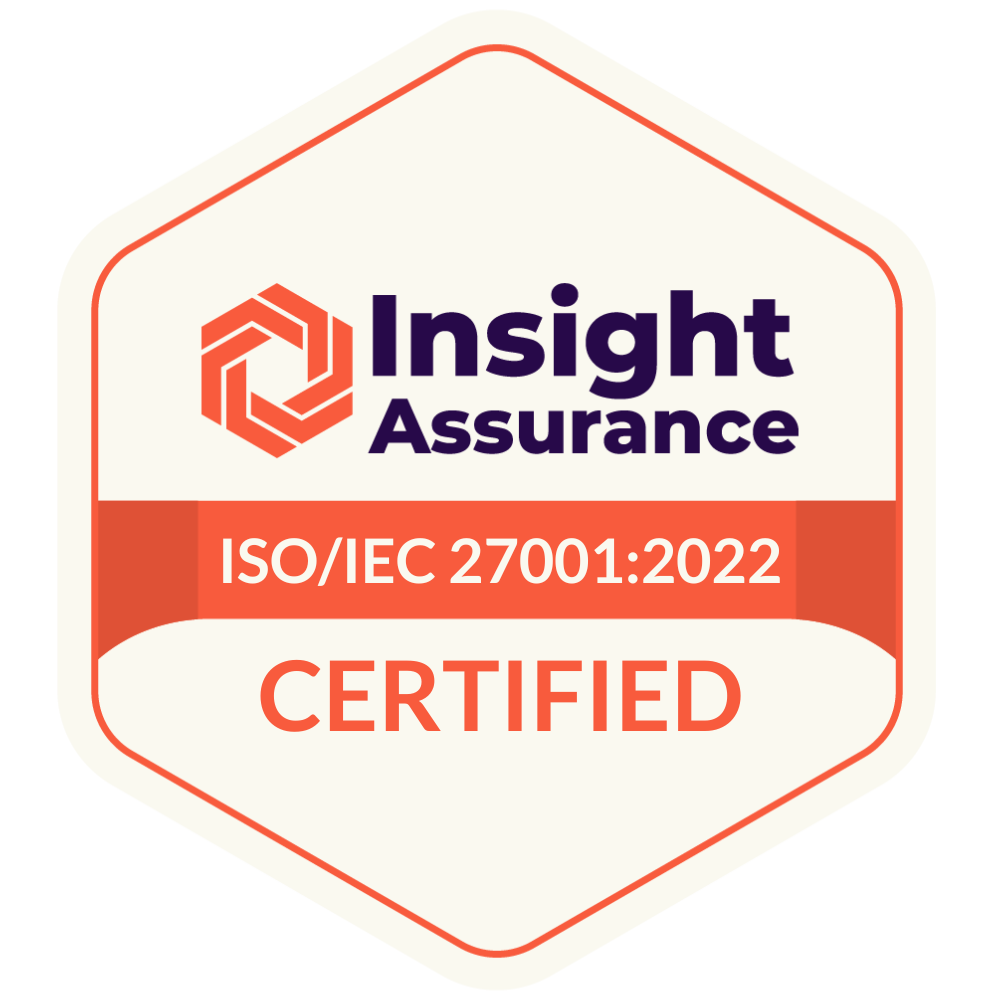Yesterday, I had the privilege of speaking on a panel hosted by the D8Ai Club at Rise in London, where we dove into the powerful (and rapid) shift that AI is driving in the modern workplace. While some claim the AI revolution is coming, the reality is that it’s already here and evolving faster than ever.

From Niche to Table Stakes
Just a few years ago, implementing AI across an organization was considered daring or experimental. Today, it’s table stakes. Fraud detection, insurance underwriting, automated quality control on the assembly line, and recommendation engines are no longer novel: they’re standard operating procedure. We’re now in an era where ML deployments with high availability, low latency, and massive throughput are expected. Even with these capabilities in place, there are plenty of opportunities for innovation, particularly in how we combine AI tools in novel ways, reduce infrastructure costs, and harness the emerging power of generative AI (GenAI).

The Unrelenting Pace of GenAI
AI is no longer the sole domain of large enterprises. We’re seeing everyone, from startups to individuals, embracing GenAI models to turbocharge productivity. The pace of change is unrelenting; just when you think you’ve gotten a handle on the latest tool, something new and more powerful hits the market. This dynamic environment demands that we constantly “unlearn” old habits and “relearn” new ways of working. A baseline understanding of how AI systems function (and how they can fail) is becoming vital for anyone looking to remain relevant and competitive.
Soft Skills Trump Technical Ability
Even as technical skills remain crucial, they’re not enough to guarantee success in an AI-first world. Tools can sometimes produce dubious outcomes, so having a human in the loop is critical. We need people who can think critically, empathize, strategize, and guide the technology toward meaningful outcomes. Soft skills are quickly becoming the most critical differentiator in a world where AI handles the routine heavy lifting.
Reinventing Learning and Upskilling
The way we acquire skills is also shifting rapidly. Education is becoming hyper-personalized, and companies are recognizing the need to upskill employees fast to remain competitive. Meanwhile, governments must think about supporting individuals whose jobs are threatened by automation or who need help re-entering the workforce. Keeping pace with AI-driven transformations means not just learning new skills but also adopting a mindset that embraces continual reinvention.
Rethinking Hiring and Careers
Hiring processes are also due for a shake-up. Employers are seeking individuals who can adapt quickly rather than candidates who check traditional boxes, like having a certain degree or set number of years in the field. What matters more are the projects you’ve tackled, your outlook on problem-solving, and your ability to think critically and engage others.
Yes, routine and predictable jobs are fading, but entirely new roles are springing up in their wake. MLOps Engineers and ML Engineers were barely recognized a few years back and are now integral to operating AI in production, while emerging roles like LLMOps, AI Engineers, and Prompt Engineers are just beginning to shape the next wave of innovation.
Augmentation, Not Replacement
Despite the anxiety about AI taking jobs away, the reality is that the technology is designed to augment our capabilities, not replace them. Take call centers, for instance: AI can route queries more efficiently, analyze customer intent, and provide staff with valuable context, enabling more empathetic, human conversations. It’s not about removing the human element; it’s about enhancing it.
Looking Ahead
It’s easy to feel daunted by the accelerating pace of AI breakthroughs. But if there’s one common theme from the panel, it’s that the future of work is brimming with possibility. AI won’t just make us more efficient; it can also make work more meaningful by freeing us up to focus on what truly matters: human connection, creativity, and strategic decision-making.
The choice is ours: We can stand still and risk being left behind, or we can embrace change, continually learn, and let AI serve as a powerful ally in shaping a workplace that’s truly innovative, inclusive, and transformative.
Ready to accelerate your ML and AI at scale? At Seldon, we’re passionate about helping organizations deploy, manage, and monitor machine learning models at scale, so you can focus on unlocking the full potential of AI for your business. Let’s create the future of ML and AI, together.

